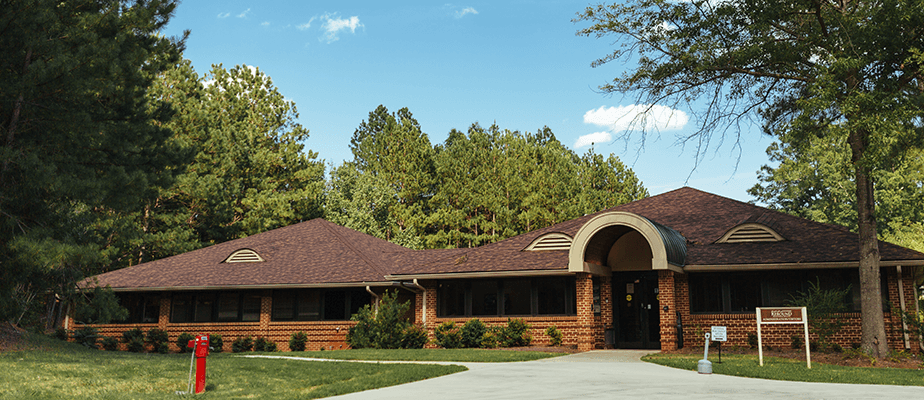Rebound Behavioral Health Hospital helps adults struggling with self-harm build a strong foundation for long-term stability. Rebound is a trusted mental health treatment center for adults in South Carolina.
More About Self-Injury
Learn More About Self-Harm and Treatment at Rebound Behavioral Health in South Carolina
Self-harm, also called self-injury, is the act of deliberately inflicting harm to one’s own body as a way of coping with deep emotional distress. Self-injury may help you express feelings you can’t put into words or distracts you from the emotional pain inside you. You know that other people probably won’t be able to understand the ways in which self-injury helps you to cope with these distressing feelings, so you have most likely kept this behavior a secret. You may have started to feel crushed by the burden, feeling more lonely and worthless. Additionally, you are aware that the relief you’re looking for only lasts a brief period of time after you self-harm. Soon all of horrible feelings return and you are once again consumed with the urge to hurt yourself. You want out, but you don’t have any other way of coping with the emotional turmoil inside you.
Our self-harm treatment center knows that self-injury has served a purpose for you, that it is the only way in which you know how to cope with the stress of everyday life. We will never judge you for your actions, but we will teach you the strategies necessary to lead a happy life free of self-harm. We have helped many men and women just like you successfully confront the emotions inside of them and learn to cope with them in a healthier manner. It’s time to get the help you need to live the life you deserve.
How to Help a Loved One
Helping a Loved One get Treatment for Self-Injury
When you find out that your loved one has been engaging in self-harming behaviors as a means to cope with overwhelming emotions, you probably feel a ton of mixed emotions. You may feel horrified that someone would hurt themselves intentionally. You may feel guilty that you didn’t notice it sooner. You know that your loved one needs help to stop, but you may not know how to provide that help. Here are some tips for helping a loved one who self-injures:
Feel your feelings: It’s very important that you focus upon working through your own emotions before you begin to tackle the subject with your loved one. It’s normal to have a variety of emotions – guilt, anger, shock, disgust – and acknowledgement of these feelings is important before you try to talk to your loved one.
Educate yourself: One of the most important aspects of guiding your loved one into treatment is to make sure you’re properly educated about self-injury, the forms it takes, and how people recover from this behavior. This will let you empathize with your loved one and understand the pain he or she is in.
Communicate: When you sit down with your loved one to talk about his or her behavior and seeking care at a treatment center for their self-injury, be sure to approach the situation in a non-judgmental way. Until you’ve walked a mile in their shoes, you can’t understand precisely how he or she feels. Offer loving, unconditional support, not ultimatums, and listen openly and honestly to how your loved one is coping. Then offer the suggestion of an inpatient program to help them overcome this behavior. Don’t expect an immediate response, just let them know you’ll be beside them every step of the way.
Why Consider Treatment
Why Consider Inpatient Treatment for Self-Harm at Rebound Behavioral Health in South Carolina
If you’re engaging in self-injury as a way of coping with life events, you may wonder why you should stop. If it’s helping, why would you want to stop? The problem with self-harm is that while it offers temporary relief, it causes more long-term complications than it solves and prevents you from learning more adaptive ways of handling your emotions. The burden of secrecy you feel surrounding your self-injury can become so overwhelming that it can lead to more self-injury causing a vicious cycle. The complications caused by severe self-injury can lead to accidental injuries and even death. It’s very important that people who self-injure seek treatment for this disorder before things get worse.
A hospital for those suffering from self-harm is one of the best ways to help treat self-injury as it allows for the development of coping strategies in a safe, supportive environment. The ability to escape from the stress of your current daily life can allow you to focus upon the one thing that matters most – recovery. In an inpatient treatment center, you’ll always have someone to turn to when you feel a trigger to self-injure and you’ll learn that you have coping skills you didn’t even know about. The support of others who are recovering from similar struggles during this time is critical and you’ll be able to work with one another to overcome your urges to cut and find new ways of expressing your emotions.
Our Rehab Philosophy
Rebound Behavioral Health’s Rehab Philosophy
As the leading treatment center for self-harm in South Carolina, we use a strengths-based methodology to help treat men and women who come to us for self-injury. We believe that you have deep within you the ability to steer your own recovery and your treatment team is here to guide you on your journey. Our compassionate and caring staff has experience helping people who self-injure learn new ways to express emotions, cope with life challenges, and develop the life skills necessary to lead a happy, productive life. You’re an integral part of your treatment team, and you’ll work closely with them to create a plan of care for your stay with us that meets all of your needs. When you’re at Rebound, you’re family.
Treatment Methods
Types of Self-Injury Treatment Offered at Rebound Behavioral Health
When you come to us for help overcoming your urges to self-injure, we’ll first have you undergo a variety of examinations and evaluations to allow us to gain a full picture of your struggles. Our medical examination will help us determine if you’re suffering any complications from your self-harm and if you have been self-medicating with drugs or alcohol. The psychological evaluation will let us determine what underlying disorder or trauma is causing the self-destructive behaviors and begin to treat these disorders. We’ll take the results of your evaluation and sit down to work out a treatment plan for your stay with us.
Medication is often used to help treat the underlying disorder leading to the self-injurious behavior or as a means to reduce the symptoms you have upon arrival. Many disorders do require life-long medication management, while others may be tapered down at the discretion of the treatment team. The treatment team will be involved in any decisions relating to medication.
Individual therapy can be very helpful for people who engage in self-injury as it allows you one-on-one time with a therapist to share your struggles, process your emotions, discuss any mental disorders you may have been diagnosed with, and work to develop the coping skills needed to successfully overcome self-injury. Our therapists tend to include a variety of therapeutic techniques in individual therapy, most notably cognitive-behavioral therapy (CBT), which can help you identify negative thought patterns and replace them with more adaptive ways of looking at the world.
Group therapy is the cornerstone of the treatment approach at our hospital for self-injury. We host a variety of groups each day that will allow you to work with others who are similarly struggling so that you can each support one another. You’ll work together to process your emotions about self-injury, learn about the importance of self-care, and discuss coping strategies and ways you can express your emotions without engaging in self-injury.
Family therapy can be very successful at helping you mend any bonds that have been strained as a result of self-injury. We’ll work to educate your family about self-injury and recovery and allow them to share their feelings about your self-injury. We’ll discuss ways they can help you during your recovery and provide referrals to available community resources to ensure continued healing.
As a holistic treatment center, Rebound Behavioral Health Hospital is proud to offer a variety of experiential therapies to complement traditional therapeutic techniques. These include:
- Massage therapy
- Exercise therapy
- Activity therapy
- Relaxation therapy
- Music therapy
- Pet therapy
- Spiritual counseling
- A.A. and N.A. groups
Discharge & Continuing Care
Maintaining Your Mental Health While Suffering from Self-Harm
As your time for discharge draws close, you’ll meet with a discharge planner and your treatment team to determine the next best steps in your care. Many people opt to step down from our inpatient services into our outpatient services. This will allow you to slowly reintegrate back into your community while focusing on your recovery during the day. Other people may have made enough progress at our treatment center to be ready to return home with referrals to traditional outpatient therapy and community resources in their community.


















